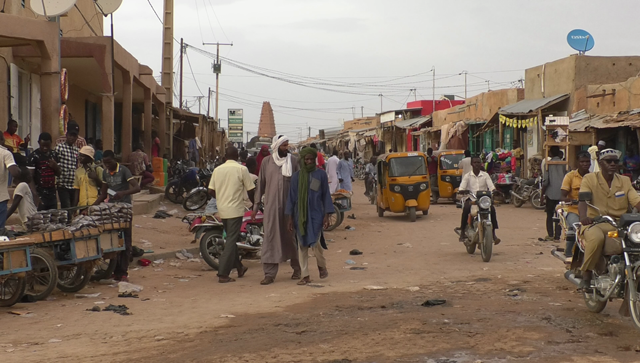On the sidelines of the Dakar Forum, a meeting brought together military, civil, academic and diplomatic actors at the initiative of the Fulani observatory, Kisal. Objective: to pool resources (networks, tools, knowledge), «in an integrative way, in order to support the efforts of national and supranational institutions and organizations, in the containment of the vulnerability phenomena of the Sahel populations to the violent radicalization of their social and political complaints».
In order to accompany the G5 Sahel states and its States in their mission of securing populations, the Fulani observatory, KIsal, brought together civil, military, diplomatic and academic actors, on November 12, in Dakar, under the theme «The vulnerability of rural and pastoral populations to violent radicalization in the Sahel: Towards an integrative approach to human safety».
Kisal, an association whose name means «help, supervision» created in November 2015, is the human rights branch of Tabital Pulaaku International, and aims to give a voice to nomadic communities in West Africa. According to its President, Dougoukolo Alpha Oumar Ba-Konaré, clinical psychologist and teacher of Fulani languages and societies (INALCO, Paris, France), the objective of this meeting was to pool resources (networks, tools, knowledge), «in an integrative way, in order to support the efforts of national and supranational institutions and organizations, in the containment of the vulnerability phenomena of the Sahel populations to the violent radicalization of their social and political complaints».
«We prefer to the condensed notion of radicalization of populations or indigenization of armed ideological groups, the notion of vulnerability of populations to various radicalizations (religious, ethnic, territorial, etc.) because of multiple factors underpinned by the institutional and physical insecurity, and human development», indicates Dougoukolo Alpha Oumar Ba-Konaré.
In the Sahel, more precisely within the borders of the three countries (Mali, Burkina Faso, Niger), called Liptako Gourma, the joint G5 Sahel force launched its operations a few weeks ago. Another military operation that does not reassure civilians already terrorized by the activities of armed groups (terrorists, communitarians, etc.). For Kisal, these people’s fears must be integrated into the field policies. «Any initiative to act in territories living under the balance of chaos must fully integrate the potentialities, fears and opportunities offered by the people». Especially as the joint force is deployed in a context where the report on the army, mainly Malian and Burkinabe sides, is marked by accusations of abuses against civilians.
Vulnerable populations
The exchanges especially recalled the necessity for the military operations not to yield to amalgam, very frequent between some communities and the armed groups, mainly «jihadists». As is often the case between the Fulani and the terrorist groups that scour the Center of Mali. The multidimensional nature of security problems in the Sahel was noted. «Firstly, the political component of the security crisis and human rights issues in the Sahel would be based on political elements combining the weakness of integration processes of populations into the plans, to competing for political representation of each concerned party. Competition between elites contributes to rivalry on the ground, between communities, with the proliferation of militias supported from the decision-making spaces», one of the participants recalled.
Another dimension no less important: the humanitarian cost of counter-insurgency operations, «where frequent fighting in populated areas weakens the resilience of civilians and exposes them to crossfire, while systematizing the creation of gray areas where the State is absent». Then, in their way of dealing with security problems, States create frustrations that may underlie inter-communal conflicts: the arrests of Fulanis in the Tahoua and Tillabéri regions of Niger and in the Center of Mali. «The arrests bring social, economic and psychological crises, because of the extraction of men from their community and the isolation and uncertainty of those who remain without them». says Kisal, in the analysis note which Sahelien received a copy.
Present at the meeting, the United Nations Special Representative in Mali, Mahamat Saleh Annadif, emphasized the «need for the various States and institutions of the Sahel zone to have quality interlocutors among the various groups and actors in the field».
Sahelien.com

